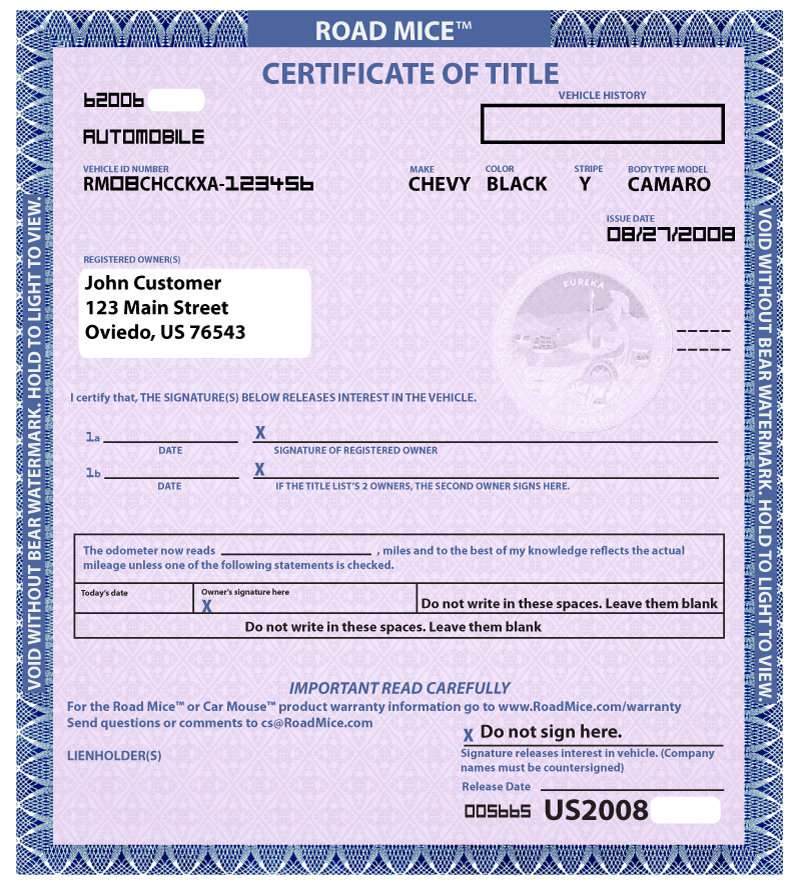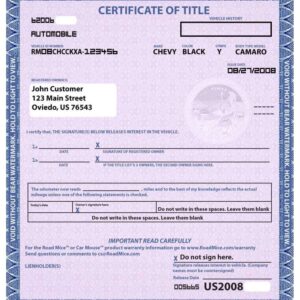Bought car lost title before transfer
Bought a Car, Lost the Title Before Transfer? Here’s What To Do Now

Buying a car is a major milestone, but losing the title before transferring ownership can turn it into a legal headache. Whether the vehicle is new or used, and whether it’s a private party transaction or a dealership deal, misplacing the car title before the transfer is a common issue that requires immediate attention. The good news is that there are clear steps you can take to resolve the situation and legally register the vehicle in your name.
What is a Car Title and Why Is It Important?
A vehicle title, also known as a certificate of title, is a legal document issued by the Department of Motor Vehicles (DMV) that proves ownership of a vehicle. This document includes critical information such as:
-
VIN (Vehicle Identification Number)
-
Make, model, and year
-
Odometer reading at the time of sale
-
Owner(s) information
-
Lienholder information (if applicable)
Without this document, you cannot legally register, sell, or insure the vehicle.
Lost Title Before Transfer? Act Immediately
If you bought a car but lost the title before transferring it to your name, the clock is ticking. Most states have a time limit (typically 15–30 days) to transfer the title to avoid penalties, late fees, or even legal complications.
Here’s what to do step-by-step.
Step 1: Determine the Current Title Status
First, establish who legally owns the vehicle at this point. There are two possibilities:
1. Seller Never Signed Over the Title
If you never received a signed title from the seller, then the vehicle is still in their name, and you cannot proceed without their cooperation.
Solution:
-
Contact the seller immediately.
-
Request they apply for a duplicate title and sign it over to you.
-
Ensure the duplicate title is notarized (if required by your state).
2. You Received the Title But Lost It
If you received the signed title but misplaced it before submitting it to the DMV, then you need to request a replacement as the new legal owner.
Solution:
-
You’ll typically need to provide a bill of sale, driver’s license, vehicle information, and sometimes a Lien Release if applicable.
-
You must fill out a Duplicate Title Application form specific to your state.
Step 2: Contact Your Local DMV or State Vehicle Agency
Every U.S. state has its own DMV (or equivalent) with slightly different rules. Visit the official website of your state’s DMV and locate the section on duplicate titles or title transfers. You may need to:
-
Schedule an appointment
-
Download and complete a duplicate title form
-
Pay a processing fee (usually $10–$50)
-
Submit supporting documents (e.g., bill of sale, affidavit of loss, identification)
Some states offer online or mail-in services, while others require an in-person visit.
Step 3: Prepare Required Documents
To expedite the process, gather all necessary documents ahead of time. These commonly include:
-
Bill of Sale (must include VIN, price, date, buyer and seller info, and signatures)
-
Odometer Disclosure Statement (required for cars under 10 years old)
-
Photo ID (Driver’s License)
-
Proof of Insurance
-
Application for Duplicate Title
-
Affidavit of Lost Title (some states require this to be notarized)
Step 4: Apply for a Bonded Title if Necessary
If the seller is uncooperative or you bought the car without a title and now can’t find them, a bonded title may be your only option.
A bonded title is a type of legal title that protects the state and any previous owners in case someone later claims ownership of the vehicle.
Process:
-
Submit a Surety Bond (typically for 1.5–2 times the vehicle’s value).
-
Complete the application for a bonded title.
-
After 3–5 years (varies by state), the bonded title can be converted to a standard title.
Step 5: Complete the Title Transfer Once Duplicate is Issued
Once your duplicate or bonded title is approved, you’ll be able to:
-
Register the car under your name
-
Get license plates and stickers
-
Obtain insurance
-
Legally drive, sell, or gift the vehicle
Be sure to submit the title transfer forms within the time frame your state requires to avoid late fees or title transfer penalties.
What If the Vehicle Has a Lien on It?
If the vehicle still has a lien (loan) attached, then the lender may still hold the title. In this case:
-
Contact the lienholder directly and request they send a Lien Release Letter or original title.
-
Once the lien is satisfied, the lender is required to release their claim and send you the appropriate paperwork.
Avoiding Future Title Issues
To protect yourself in the future:
-
Always verify the title is present, signed, and clean before handing over money.
-
Complete the title transfer immediately after purchase.
-
Take photos of the title and bill of sale for your records.
-
Avoid buying vehicles with open titles or sellers unwilling to sign the document properly.
-
Use notary services when possible for extra legal protection.
Penalties for Delaying Title Transfer
Each state has penalties for delaying or failing to transfer the title. Common consequences include:
-
Late fees (typically $25–$100+ depending on the delay)
-
Vehicle registration hold
-
Inability to obtain insurance
-
Legal action in case of disputes or accidents
Some states also charge interest on unpaid taxes and fees, which can add up quickly.

Buying a Car Without a Title: High Risk, Low Reward
If you’re considering buying a car without a title, even if it seems like a good deal, exercise extreme caution. You risk:
-
Buying stolen property
-
Discovering salvage or flood damage
-
Being unable to register or insure the car
-
Facing costly legal battles
Only proceed if you’re prepared to go through the bonded title process or work directly with the DMV.
Conclusion: Lost Title Before Transfer? Don’t Panic—Act Fast
Losing a title before it’s transferred into your name can seem overwhelming, but it’s entirely fixable with the right approach. Whether you’re working with the seller, applying for a duplicate title, or going the bonded title route, acting quickly and understanding the legal steps will help you stay compliant and protect your ownership rights.
Make sure to keep all documents, act within the legal timeframe, and never buy a vehicle without a properly signed title. Your diligence now will save you from expensive and stressful problems later.
Showing the single result



